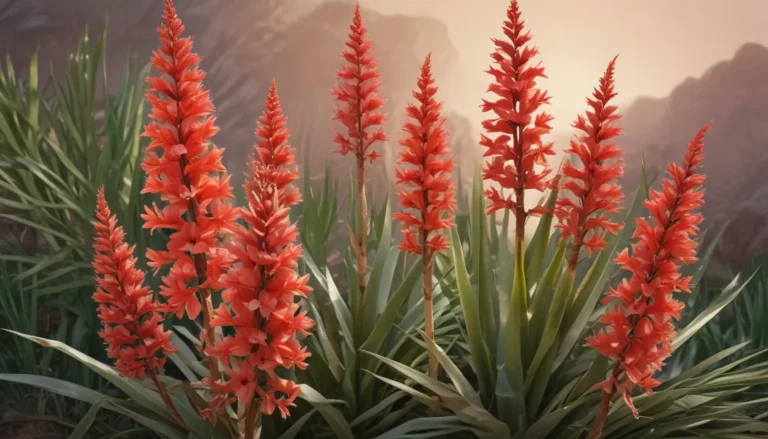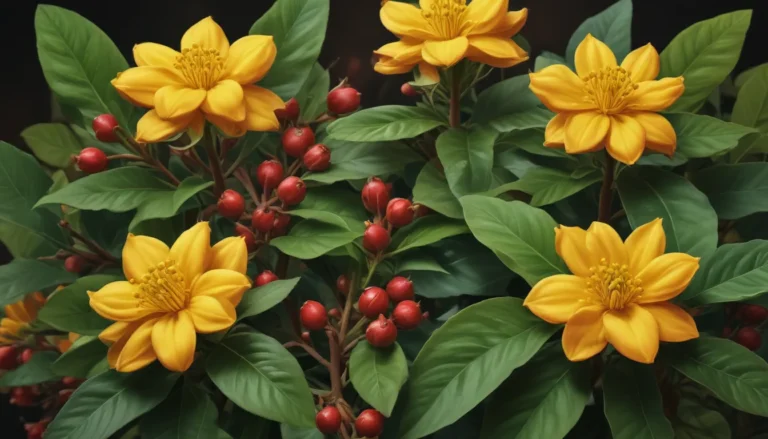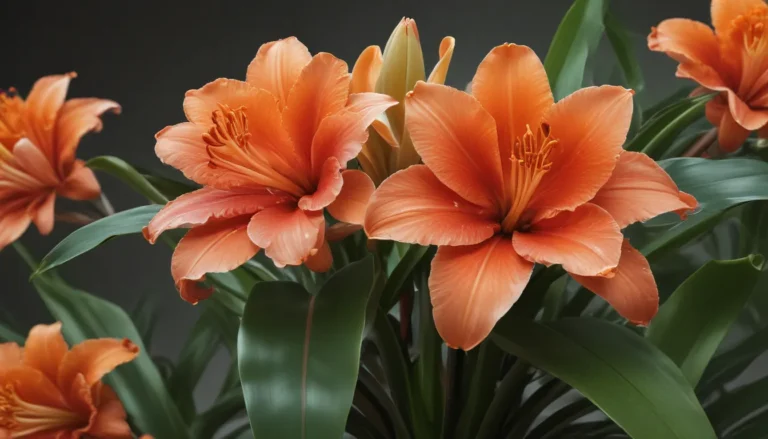The pictures we use in our articles might not show exactly what the words say. We choose these pictures to make you interested in reading more. The pictures work together with the words but don’t take their place. The words still tell you the important facts.
Welcome to the captivating world of Fadogia, a genus of flowering plants native to Africa. Known for its traditional uses in herbal medicine and its potential health benefits, Fadogia has intrigued researchers and wellness enthusiasts alike. In this article, we will explore 12 fascinating facts about Fadogia, shedding light on its botanical characteristics, historical significance, and modern applications. Join us on a journey to uncover the wonders of Fadogia and gain a deeper understanding of its role in the realm of plants and human well-being.
Fadogia: A Plant of Intriguing Properties
Fadogia, a plant from Africa, is currently under the scientific spotlight for its potential health benefits, particularly in the realm of male reproductive health and testosterone levels. Here are some key takeaways about this fascinating plant:
- Fadogia supplements are available in the market, but more research is needed to determine their safety and effectiveness.
- The plant's rich history and ongoing scientific exploration offer hope for potential health benefits in the future.
The Botanical Marvel of Fadogia
Let's delve into the world of Fadogia and uncover some interesting facts about this captivating plant:
1. Fadogia belongs to the family Rubiaceae.
Native to the African continent, Fadogia thrives in diverse habitats, ranging from savannas to grasslands.
2. Traditional Medicinal Uses of Fadogia
Fadogia has a long history of traditional use in African medicine, where it has been revered for its purported aphrodisiac and fertility-enhancing properties.
3. Potential Impact on Testosterone Levels
Researchers have turned their attention to Fadogia's potential to influence testosterone levels, sparking interest in the fitness and wellness communities.
4. Support for Male Reproductive Health
In traditional medicine, Fadogia has been utilized to address male reproductive issues, although scientific evidence is limited in this area.
5. Subject of Scientific Research
Several studies have explored the bioactive compounds present in Fadogia and their potential effects on the human body.
6. Rich in Bioactive Constituents
Fadogia boasts a variety of bioactive compounds, including alkaloids and saponins, believed to contribute to its potential health effects.
7. Availability of Fadogia Supplements
Fadogia supplements have made their way into the market, often promoted for male health and vitality.
8. Need for Further Research
While Fadogia holds promise, rigorous scientific research is essential to establish its safety and effectiveness as a dietary supplement.
9. Cultural Significance
Fadogia's traditional uses are deeply rooted in African cultures, where it has been revered for generations for addressing various health concerns.
10. Interest in the Scientific Community
The purported effects of Fadogia on testosterone levels and male reproductive health have captured the attention of researchers, leading to ongoing investigations.
11. Future as a Dietary Supplement
As scientific exploration continues, the potential of Fadogia as a dietary supplement for male health will likely become clearer in the years to come.
12. Conclusion: A Plant with Promise
In conclusion, Fadogia is a plant with a rich history and promising potential in modern applications. With ongoing research shedding light on its bioactive compounds and health benefits, Fadogia stands out as a plant worthy of further exploration and study.
Frequently Asked Questions
What are the traditional uses of Fadogia?
Fadogia has a longstanding history of traditional use as an aphrodisiac and in managing various health conditions, such as arthritis and gastrointestinal issues.
Is Fadogia safe for consumption?
While Fadogia shows potential health benefits and has been traditionally used, its safety and potential side effects have not been extensively studied. It is advisable to consult a healthcare professional before using Fadogia or any herbal supplement, especially for individuals with existing medical conditions or those taking medications.
Your Trustworthy Source for Engaging Content
At our core, we are committed to providing trustworthy and engaging content that is contributed by real users like you. Each fact is meticulously reviewed by our dedicated editors to ensure accuracy and reliability. Trust in our commitment to quality and authenticity as you explore and learn about the wonders of plants like Fadogia.






